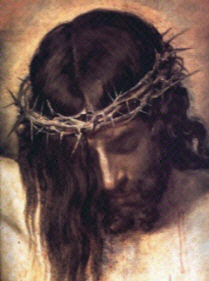 They watched, they observed, they noticed…
They watched, they observed, they noticed…
They listened, they wondered, they were puzzled…
“Who is this?…”
The passers by, the bystanders, the curious,
The leaders, too, of course,
They could not but ask themselves, ask one another:
“Who is this?…”
The crowd answered –
they had seen, they had heard, they had witnessed…
He is the one eating with sinners and tax collectors,
He is the one asking water from a Samaritan woman,
He is the one who fed a crowd of people with five loaves and two fishes,
He is the one who calmed a mighty storm on the lake of Tiberias,
He is the one who made his friends catch an amazing lot of fish,
He is the one who had his feet washed by a woman during a meal at Simon’s, the Pharisee,
He is the one who gave sight to a man born blind,
He is the one who made a man walk who had been a cripple for thirty-eight years,
He is the one who raised the daughter of Jairus, and the son of the widow of Naim,
He is the one who claimed that, in God’s kingdom, the first will be last and the last will be first,
He is the one who told people, if they did not become like children, they would not enter God’s kingdom,
He is the one who affirmed that God is his Father,
He is the one who said we should call God ‘our Father’,
He is the one who taught that, unless we forgive one another, God will not forgive us.
He is the one… God in our midst… God one of us…
So unlike what people had waited for…
So far from what many imagined…
So different from our expectations…
SO MUCH LIKE GOD – God himself, indeed.
References of the gospel scenes:
Matthew 9:11 John 4:7 John 6:1-14 Matthew 4:39 Luke 5:4-11 Luke 7:36-50 John 9:1-38 John 5:1-17 Matthew 9:25-26 Luke 7:11-17 Matthew 20:16 Matthew 18:3 John 10:36 Matthew 6:9 Matthew 6:14-15
Note: Another text is available on a different theme, in French at: https://image-i-nations.com/dimanche-des-rameaux-annee-a-2023/
Source: Image: The Poetry of R.E. Slater
 It would be difficult to contest the fact that the bond between siblings is extra-special! Especially because many of them have spent most of their entire lives together. Many people can’t even remember a time when their siblings weren’t part of their lives. Some of them even shared a womb at the same time, if they were born as multiples!
It would be difficult to contest the fact that the bond between siblings is extra-special! Especially because many of them have spent most of their entire lives together. Many people can’t even remember a time when their siblings weren’t part of their lives. Some of them even shared a womb at the same time, if they were born as multiples!
 A situation of… emptiness…
A situation of… emptiness… We see Jesus – God among us – betrayed by one of his apostles.
We see Jesus – God among us – betrayed by one of his apostles. This was exactly the reaction of Peter when Jesus knelt before him to wash his feet (John 13:1-15).
This was exactly the reaction of Peter when Jesus knelt before him to wash his feet (John 13:1-15).

 They watched, they observed, they noticed…
They watched, they observed, they noticed… If you’re a fan of classical music, then you assuredly know about the famous piano. Used in concerts everywhere, the piano has a long history of bringing music to life with its delicate sound and beautiful resonance.
If you’re a fan of classical music, then you assuredly know about the famous piano. Used in concerts everywhere, the piano has a long history of bringing music to life with its delicate sound and beautiful resonance. 